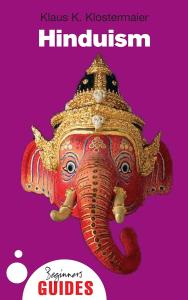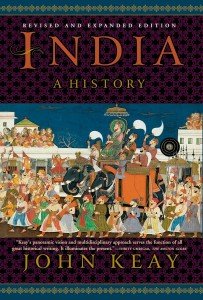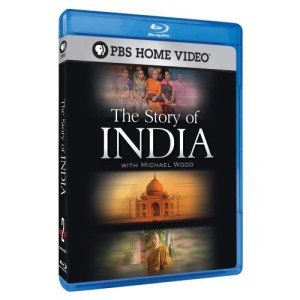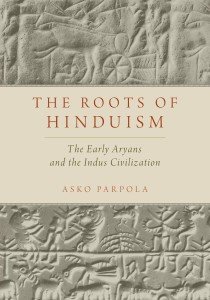Review of Hinduism: Beliefs and Practices by Jeaneane D. Fowler
A Scholarly Exploration of Hindu Philosophy and Tradition
Jeaneane D. Fowler's Hinduism: Beliefs and Practices, published in 1996 by Liverpool University Press, provides an excellent and comprehensive analysis of one of the world's oldest and most complex religions. While assuming no prior knowledge of the religion, Fowler undertakes the monumental task of elucidating Hinduism's multifaceted traditions, philosophies, and practices for readers across academic disciplines and general interest spheres. This book stands as an essential resource for those seeking to understand the intricacies of Hindu belief systems, not only as a religion but as a way of life deeply intertwined with culture, philosophy, and history.
Jeaneane Fowler was formerly Head of Philosophy and Religious Studies at the University of Wales, Newport, and later an Honorary Research Fellow.
Structure and Content
Fowler's work is methodically organized, presenting Hinduism in a manner that is both accessible and academically rich. The book is divided into sections that address key aspects of Hinduism, including its historical origins, sacred texts, philosophical schools, rituals, and cultural practices.
Historical Overview
The text begins with a detailed examination of Hinduism's roots, tracing its origins to the Vedic period in ancient India. Fowler discusses the evolution of Hindu thought from early Vedic traditions to the Upanishadic period, illuminating the transition from ritualistic practices to profound philosophical inquiry. Her historical narrative is both engaging and informative, providing readers with a solid foundation to understand subsequent developments in Hindu thought.
Sacred Texts and Philosophies
One of the book's strongest sections is its exploration of Hinduism's sacred texts, including the Vedas, Upanishads, Bhagavad Gita, and Puranas. Fowler delves into the content and significance of these texts, highlighting their contributions to Hindu theology and philosophy. She provides insightful analyses of key concepts such as dharma (duty), karma (action and consequence), and moksha (liberation), demonstrating their centrality to the Hindu worldview.
The philosophical schools of Hinduism—Samkhya, Yoga, Nyaya, Vaisheshika, Mimamsa, and Vedanta—are given significant attention. Fowler unpacks the intricate theories and doctrines of each school, making them accessible to readers unfamiliar with Indian philosophy. Her exposition on Advaita Vedanta, in particular, is noteworthy, as she captures the essence of non-dualistic thought with precision and clarity.
Rituals and Practices
Fowler does not merely dwell on the theoretical aspects of Hinduism; she also provides a thorough account of its practices and rituals. From daily pujas (worship) to grand festivals like Diwali and Holi, the book illustrates the vibrant and dynamic nature of Hindu religious life. Fowler pays attention to regional variations and the diversity within Hindu practices, acknowledging the religion's adaptability and inclusivity.
Socio-Cultural Dimensions
Another notable feature of the book is its examination of the impact of Hinduism on Indian society and culture. Fowler discusses the caste system, gender roles, and the interplay between religion and politics, offering a balanced and nuanced perspective. She avoids oversimplifications, instead of presenting these issues in their historical and cultural contexts.
Strengths of the Book
Jeaneane D. Fowler's Hinduism: Beliefs and Practices excels in several areas, making it a valuable addition to the study of world religions.
Comprehensive Coverage
Although it is a fairly short book, its thoroughness remains one of its greatest strengths. Fowler covers a wide range of topics, ensuring that readers gain a holistic understanding of Hinduism. Her ability to interweave historical, theological, philosophical, and practical aspects of the religion is commendable.
Clarity and Accessibility
Despite the complexity of the subject matter, Fowler writes with remarkable clarity. Her explanations are concise yet detailed, making the book accessible to readers with varying levels of familiarity with Hinduism. This balance between academic rigor and readability is a testament to Fowler's skill as a writer and scholar.
Nuanced Analysis
Fowler approaches her subject matter with sensitivity and nuance, acknowledging the diversity within Hindu traditions. She avoids generalizations and stereotypes, presenting Hinduism as a dynamic and evolving religion rather than a monolithic entity.
Criticisms and Limitations
While Hinduism: Beliefs and Practices is an impressive work, it is not without its limitations.
Limited Engagement with Contemporary Issues
The book's focus is primarily historical and philosophical, with less emphasis on contemporary developments within Hinduism. Issues such as globalization, environmental movements, and the rise of Hindu nationalism are only briefly touched upon or omitted. Given the publication date of 1996, this may be understandable, but readers seeking insights into modern Hinduism may find the text somewhat lacking.
Academic Tone
Although Fowler's writing is clear, her academic tone may not appeal to all readers. Those seeking a more personal or narrative-driven exploration of Hinduism may find the book's style less engaging.
Conclusion
Hinduism: Beliefs and Practices by Jeaneane D. Fowler is a work that offers an in-depth and balanced exploration of Hinduism. Its comprehensive coverage, clarity, and nuanced analysis make it an invaluable resource for students, scholars, and anyone interested in understanding this complex and multifaceted religion.
While the book has minor limitations, such as its limited engagement with contemporary issues, these do not detract significantly from its overall value. Fowler's dedication to presenting Hinduism in all its richness and diversity is evident on every page, and her book serves as a bridge between the academic study of Hinduism and its practical manifestations in everyday life.
For those seeking to delve into Hinduism's beliefs, practices, and philosophies, Jeaneane D. Fowler's work is highly recommended. It not only educates but also inspires a deeper appreciation for one of the world's most enduring religious traditions.






